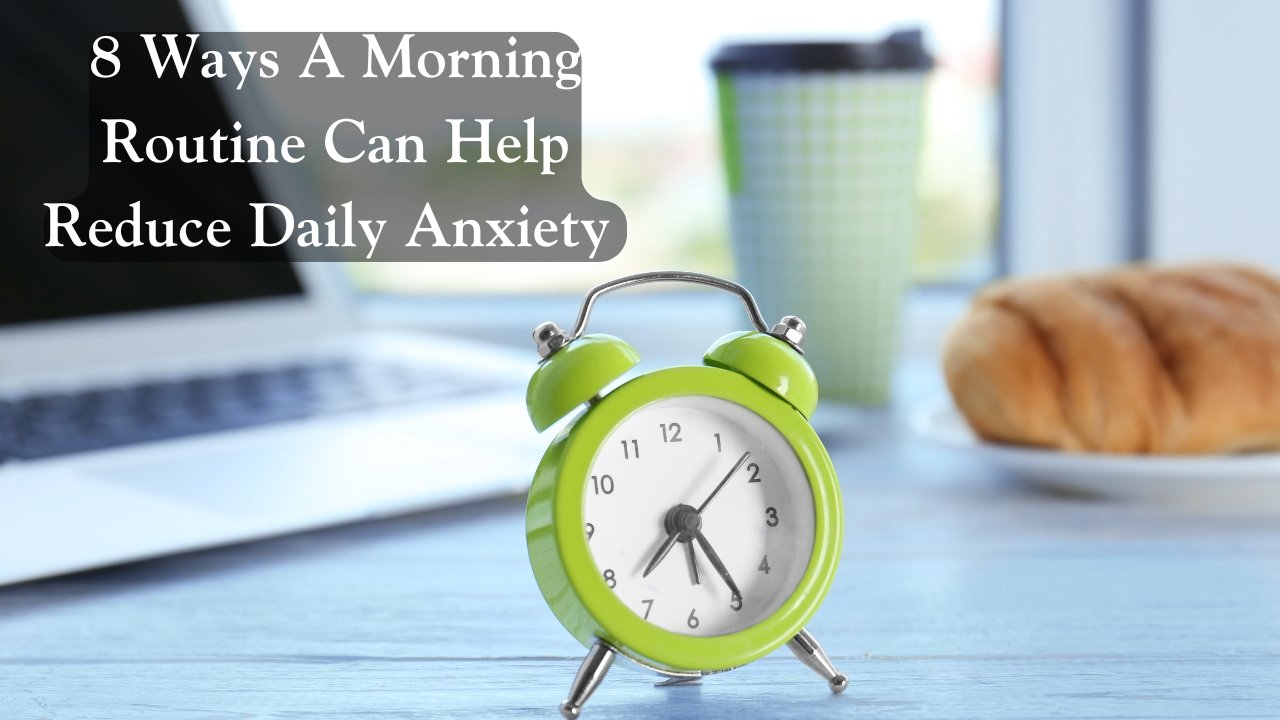

20 Simple Self-Care Strategies To Battle Your Depression
- No Comments
Feeling down and dealing with depression can be hard. But, simple self-care steps can really help. When depression feels overwhelming, small steps towards self-care can offer relief. Here are some easy self-care ideas to help you.
Physical Activity
Regular exercise can make you feel better and reduce anxiety. Here’s how to start:
- Take a 30-minute walk every day.
- Try a beginner-friendly workout video at home.
- Join a local gym or sports class for motivation.
Prioritize Sleep
Good sleep is key for your mental health. Aim for 7-9 hours of sleep each night. Here are some tips for better sleep:
- Make a bedtime routine.
- Avoid screens at least an hour before bed.
- Keep your sleeping area calm and dark.
Nourish Your Body
What you eat affects how you feel. Eat a balanced diet with lots of vitamins and nutrients:
- Eat fruits, vegetables, and whole grains.
- Limit sugar and processed foods.
- Drink plenty of water.

Connect with Nature
Being outside can improve your mood. Try these activities:
- Go for a hike or nature walk.
- Garden at home or help at a community garden.
- Enjoy fresh air while practicing mindfulness.
Express Yourself
Expressing your feelings can be therapeutic. Here are some creative ways to do it:
- Start a journal for your thoughts and feelings.
- Try painting or drawing.
- Make music or write poetry.
Build a Support System
Connecting with others can lift your mood. Here’s how to build your support network:
- Stay in touch with friends and family.
- Join a support group, online or in-person.
- Seek professional help if needed.
Practice Mindfulness
Mindfulness can help you focus. Here are some techniques:
- Try simple breathing exercises.
- Use apps or videos for meditation.
- Focus on the present by using your senses.
Limit Screen Time
Too much screen time, like social media, can harm your mood. Here’s how to manage it:
- Set times for phone or social media checks.
- Turn off notifications to avoid distractions.
- Replace screen time with reading or hobbies.
Engage in Fun Activities
Don’t forget to have fun! Try these activities to lift your spirits:
- Plan a game night with friends or family.
- Start a new hobby or revisit an old one.
- Watch a happy movie or TV show.
Gratitude Practice
Focusing on gratitude can change your mindset. You can:
- Keep a gratitude journal and write down three things you appreciate each day.
- Share your gratitude with others verbally or through notes.
- Think about positive moments in tough times.

Seek Professional Help
If depression feels too much, remember seeking help is brave. Talk to a therapist or counselor to explore your feelings. It’s okay to ask for help when you need it most.
Self-care isn’t the same for everyone. Take time to find what works for you. By focusing on self-care, you can fight depression and find joy and peace.
The Role of Mindfulness in Enhancing Well-Being
Mindfulness has become well-known for its benefits on mental health. It’s about being present and aware of your thoughts, feelings, and surroundings.
Mindfulness can make you more emotionally resilient, reduce stress, and improve your life quality.
Here are ways mindfulness helps enhance well-being:
Reduces Stress
Mindfulness is great for reducing stress. It helps you stay in the moment, not worrying about the past or future. This can lower your anxiety levels. Here are some ways to do it:
- Deep breathing exercises
- Body scan meditation
- Walking meditation in nature
Improves Emotional Health
Mindfulness helps you understand your emotions better. By watching your feelings without judgment, you can handle negative thoughts better. Studies show that regular mindfulness practice can make you happier. This can lead to:
- Less anxiety and depression
- More happiness
- Stability in emotions
Enhances Focus and Concentration
Mindfulness training improves your focus. It teaches you to concentrate on the present, reducing distractions. This skill can help in many areas of life, such as:
- Work performance
- Academic success
- Relationships
Promotes Self-Awareness
Mindfulness lets you see your thoughts and feelings clearly. This self-awareness helps in making better decisions and responding healthily to challenges. Key exercises for self-awareness include:
- Journaling your thoughts and feelings
- Practicing daily gratitude
- Reflecting on your reactions and behaviors
Encourages Empathy and Compassion
Mindfulness fosters compassion for yourself and others. As you become more mindful, empathizing with others becomes easier. This can improve your relationships and create a supportive environment. Ways to foster empathy include:
- Listening actively to others without judgment
- Engaging in loving-kindness meditation
- Regularly checking in with friends and loved ones

Your Mind-Body Connection
Mindfulness highlights the link between your thoughts and body. By tuning into your body’s sensations, you can better understand how emotions affect you. To explore this connection, consider:
- Yoga or Tai Chi
- Mindful eating practices
- Regular exercise with a focus on movement
Ways to Incorporate Mindfulness in Daily Life
Adding mindfulness to your daily routine can improve your well-being. Here are some ideas to get you started:
- Start your day with a few minutes of mindful breathing.
- Practice mindfulness during meals by savoring each bite.
- Take pauses throughout your day to check in with your feelings.
- Engage in mindful walking, paying attention to each step.
- End your day with reflection on what you are grateful for.
Resources for Further Learning
To learn more about mindfulness, check out these resources:
Mindfulness can greatly improve your well-being. By understanding its benefits and adding it to your life, you can live a more balanced and fulfilling life.
Whether you’re new to mindfulness or want to deepen your practice, there’s always room for growth.
Remember, every small step can lead to big changes in your mental health and happiness.
How Physical Activity Boosts Mental Health
Physical activity is key to improving your mental health. It has a profound effect on your psychological well-being.
Let’s explore how staying active can boost your mood and enhance mental health.
Understanding the Connection
Physical activity starts a chain reaction in your body that boosts your mental health. Here are some key factors that explain this relationship:
- Release of Endorphins: Vigorous exercise releases endorphins, known as “feel-good” hormones. These chemicals act as natural painkillers and mood elevators.
- Reduced Stress: Exercise lowers stress hormones like cortisol, leading to a more relaxed state of mind.
- Improved Sleep: Regular physical activity helps regulate sleep patterns, ensuring restful sleep, which is key for mental health.
- Increased Self-Esteem: Achieving fitness goals, no matter how small, boosts your faith in yourself and self-esteem.
- Social Interaction: Group activities or exercise classes provide a sense of community, reducing loneliness and isolation.
Types of Physical Activities You Can Try
Trying different physical activities can make you enjoy moving more. Here’s a breakdown of some effective exercise options:
- Aerobic Activities: Running, biking, swimming, or dancing can elevate your heart rate and are great for overall mental benefits.
- Strength Training: Lifting weights or doing body-weight exercises builds muscle and confidence.
- Mindfulness-Based Exercises: Yoga and tai chi combine physical movement with deep breathing and mindfulness, which reduces anxiety and stress.
- Outdoor Activities: Hiking, walking, or gardening not only involve physical exertion but also connect you to nature, which enhances your mood.

Creating a Routine
Creating a regular exercise routine can change your life. Here are steps to help you incorporate physical activity into your daily life:
- Start Small: Begin with short sessions of 10-15 minutes and gradually increase the duration as you feel more comfortable.
- Choose Joyful Activities: Pick exercises that you enjoy, whether it’s dancing, cycling, or team sports.
- Schedule Your Workouts: Treat exercise like an important appointment and put it on your calendar.
- Find a Workout Buddy: Exercising with a friend can make the experience enjoyable and provide motivation to stick with it.
- Track Your Progress: Keep a journal or use apps to log your workouts. Celebrating your achievements can boost your spirit!
Long-Term Benefits
Adopting a physically active lifestyle leads to long-term mental health benefits. Research has shown that:
- The risk of developing depression decreases with consistent physical activity.
- Exercise can alleviate mild to moderate anxiety and can be part of a holistic treatment plan for mental disorders.
- Regular activity helps improve cognitive functions, such as memory and concentration, which are vital for emotional well-being.
Listen to Your Body
It’s essential to listen to your body when it comes to exercise. Not every day will feel the same, and that’s perfectly okay.
If you find yourself feeling drained, it’s okay to take a break. Remember, any movement is better than none.
Engaging in physical activity is a powerful tool for boosting mental health. From increasing endorphins to providing a sense of community, the benefits of exercise for emotional well-being cannot be overstated.
By incorporating physical activity into your regular routine, you’ll be taking significant steps toward a healthier and happier you.
Nourishing Your Mind: The Impact of Nutrition on Mood
Nutrition plays a vital role in influencing our mood and mental health. What you eat can directly affect how you feel, and understanding this connection can empower you to make choices that nourish not just your body, but also your mind.
When you focus on a balanced diet rich in nutrients, you may find improvements in your energy levels, focus, and emotional balance.
Here are some key insights into how nutrition impacts your mood.

Essential Nutrients for Mood Enhancement
Certain nutrients are key for emotional well-being. Foods rich in these nutrients can lift your mood:
- Omega-3 Fatty Acids: Found in fatty fish, flaxseeds, and walnuts, omega-3s support brain health and have been linked to lower rates of depression.
- Vitamins B: B vitamins like B6, B12, and folate are vital for brain function. Foods such as leafy greens, eggs, and grains can significantly aid mood regulation.
- Vitamin D: This vitamin is linked to serotonin production. Include fortified foods, fatty fish, and sun exposure in your routine.
- Antioxidants: Fruits and vegetables are packed with antioxidants that combat oxidative stress, which can negatively affect mood. Berries, nuts, and green tea are great options.
- Amino Acids: Tryptophan is an amino acid that helps produce serotonin, a neurotransmitter that contributes to your sense of well-being. Sources include turkey, chicken, and dairy products.
Foods that Lift Your Spirits
Adding certain food items to your diet can positively affect your mood. Here’s a list of those mood-boosting foods:
- Dark Chocolate: Contains compounds that can enhance mood and reduce stress.
- Fermented Foods: Foods like yogurt and sauerkraut help to promote gut health, which is linked to better mood regulation.
- Whole Grains: Foods such as brown rice, oats, and whole grain bread can stabilize blood sugar levels, preventing mood swings.
- Nuts and Seeds: Packed with healthy fats, nutrients, and antioxidants, these snacks can provide sustained energy and improve mood.
- Leafy Greens: Spinach, kale, and broccoli are high in vitamins and minerals that support brain health.
Meal Ideas to Boost Your Mood
It’s easy to add mood-enhancing foods to your meals. Here are a few ideas:
| Meal | Ingredients |
|---|---|
| Breakfast | Greek yogurt with mixed berries and a sprinkle of walnuts |
| Lunch | Quinoa salad with leafy greens, cherry tomatoes, and grilled chicken |
| Dinner | Baked salmon with steamed broccoli and sweet potatoes |
| Snack | Dark chocolate and a handful of nuts |
The Importance of Hydration
Staying hydrated is key for a positive mood. Even mild dehydration can cause fatigue, irritability, and trouble concentrating.
Aim for at least eight 8-ounce glasses of water daily, or more if you are active. For variety, you can also include herbal teas and hydrating fruits and vegetables, such as watermelon and cucumber.
Mindful Eating Practices
How you eat can also impact your mental well-being. Consider these practices:
- Eat Mindfully: Focus on your meal without distractions. Pay attention to flavors, textures, and colors.
- Plan Your Meals: Preparing meals ahead of time can help you make healthier choices instead of opting for quick, unhealthy snacks.
- Listen to Your Body: Eat when you’re hungry and stop when you’re full. This helps you establish a better relationship with food.
By understanding the link between nutrition and mood, you can make better choices for emotional health.
Mood-boosting foods and mindful eating will nourish your body and uplift your spirit, leading to a happier and healthier you.

Building a Supportive Community for Emotional Resilience
Building a supportive community can greatly enhance your emotional resilience. When facing life’s challenges, having a network of caring individuals is invaluable.
This community provides emotional support, encouragement, and a sense of belonging. Here are some effective ways to foster such an environment.
Establish Open Communication
Creating a space where everyone feels comfortable discussing their feelings is critical. Here are some strategies to improve communication:
- Regular Check-Ins: Schedule regular meetings or catch-ups, whether virtual or in person, to discuss feelings and experiences.
- Active Listening: Cultivate an environment where everyone listens actively. This means showing empathy and understanding without jumping in to fix problems right away.
- Encourage Sharing: Create opportunities for each member to share their thoughts and feelings. This could be through group discussions, a shared online space, or journaling.
Promote Inclusivity
Inclusivity ensures that all voices in the community are heard. Here’s how you can promote inclusivity:
- Diverse Activities: Organize various activities that cater to different interests and backgrounds. This could include art workshops, book clubs, or sports events.
- Welcoming Atmosphere: Make it a point to welcome newcomers warmly. Create buddy systems where existing members help new ones feel comfortable.
- Respect and Acceptance: Encourage members to express their unique perspectives and beliefs respectfully. Understand that everyone’s experiences are valid.
Offer and Seek Support
A supportive community is built on the principle of reciprocity—giving and receiving support. Here are ways to do this:
- Be Available: Make time to listen and be there for others. Sometimes, just being a friend is enough.
- Share Resources: Share helpful resources such as articles, helplines, or workshops that focus on emotional resilience.
- Encourage Professional Help: For deeper issues, it’s vital to encourage seeking professional assistance when needed. Remind members that it’s okay to ask for professional help.
Engage in Community-Building Activities
Regularly engaging in activities can strengthen your community bonds. Here are some ideas:
- Volunteer Together: Participating in community service can build teamwork and foster connections.
- Organize Social Events: Host fun gatherings to celebrate milestones or simply enjoy each other’s company. Game nights, movie marathons, or potlucks can create a joyful atmosphere.
- Host Workshops: Offer workshops focused on personal growth, stress management, or emotional intelligence.
Utilize Technology
In today’s digital world, technology can play a vital role in building and maintaining a supportive community. Consider these options:
- Online Groups: Create online forums or social media groups where members can share experiences, support one another, and connect anytime.
- Virtual Meetings: Use video conferencing tools for those who can’t join in person, ensuring that everyone remains connected.
- Resource Sharing Platforms: Use shared documents or platforms to compile useful resources, tips, and community updates.
Practice Gratitude
Gratitude is an essential element in promoting emotional resilience. Here’s how to incorporate gratitude into your community:
- Gratitude Journals: Encourage members to keep gratitude journals, noting what they appreciate in their lives and community.
- Express Thanks: Set aside time during gatherings for members to express their thanks to each other. This acknowledgment strengthens bonds.
- Celebrate Achievements: Regularly celebrate the achievements of community members, no matter how small.
Building a supportive community does not happen overnight. It requires commitment, patience, and effort from everyone involved.
By fostering open communication, inclusivity, and mutual support, you’ll create an environment where emotional resilience thrives.
| Activity | Description | Benefits |
|---|---|---|
| Regular Check-Ins | Meetings for open discussions about feelings. | Enhances communication and trust. |
| Volunteer Together | Participate in community service. | Build teamwork and strengthen connections. |
| Gratitude Journals | Personal journals focused on gratitude. | Increase positivity and personal reflection. |
Ultimately, investing time and energy in building a supportive community fosters emotional resilience among its members.
This enables everyone to navigate life’s ups and downs more effectively. Each person plays a vital role, contributing to a collective strength that can uplift and encourage.
Closing thoughts
Self-care is key to fighting depression. It helps you manage your mental health better. Mindfulness keeps you in the moment, easing anxiety and boosting calmness.
Regular exercise is also vital. It releases happy hormones that lift your mood. Whether it’s walking, yoga, or a spin class, doing what you love helps a lot.
Eating well is important too. Foods full of vitamins and minerals help your mind and body stay sharp and stable.
Having a supportive community is also essential. Friends, family, or support groups offer comfort and reduce loneliness. They make you feel seen and heard, which is vital during hard times.
Putting together self-care strategies, mindfulness, exercise, healthy eating, and community support fights depression well.
Every small step you take can make a big difference in your mental health.
Remember, self-care is not just for you; it’s necessary for a happier, healthier life.





Leave A Comment